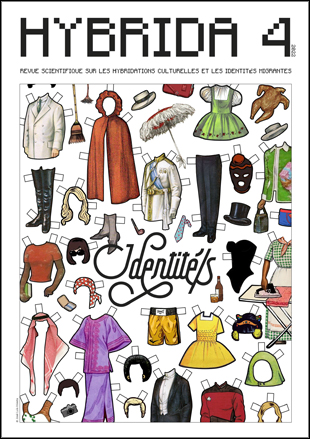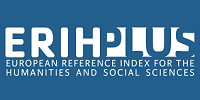Migrant identities of Édouard Glissant and Carlos Fuentes across the hybrid borders of South America
DOI:
https://doi.org/10.7203/HYBRIDA.4.23005Keywords:
Border, identity/otherness, hybridity, Spanish-American literature, French Caribbean literature Abstract
Abstract
The border is an interstitial place of interweaving cultures, languages and identities. Whether migrants cross the borders or remain in border cities, they get in touch each other on a ground that is influenced by this crossing becoming a land of encounters and conflicts, a land of hybridization and perpetual change.
Édouard Glissant, Caribbean, and Carlos Fuentes, Mexican, studied and presented to the world the complex reality of the borders of their native countries. This article wants to propose a comparative analysis of those two wandering identities who lived and explored extremely complicated confines because of their past of colonialism and slavery with which has generated still present serious social-economic consequences.
Both authors have the great merit of having crossed all borders and of having focused international attention on their borders and on their borders people.
 Downloads
Downloads
 References
References
Amilhat Sazary Anne-Laure (2020). Géopolitique des frontières. Découper la terre, imposer une vision du monde. Le cavalier bleu éditions.
Battistel C. (2017). El inmigrante en la geografía imaginaria de La frontera de cristal de Carlos Fuentes. Anmal electrónica, (43), pp. 131-150. http://www.anmal.uma.es/AnMal43/Carlos_Fuentes.pdf
Bhabha Homi, K. (1990). Interview with Homi Bhabha – The third space. In J. Rutherford (Éd.), Identity: Community, Culture, Difference, (pp. 207-221). Lawrence and Wishart. https://it.scribd.com/document/358684105/The-Third-Space-Interview-With-Homi-Bhabha
Bong Seo, Y. (2003). La pregunta por la identidad en el ámbito literario de América Latina: el caso de México. Espéculo. Revista de estudios literarios. https://webs.ucm.es/info/especulo/numero23/iden_mex.html
Patoyt, E., et Cabezas Vargas, A. (31 janvier 2022). Entretien avec Carlos Fuentes. Essais [En ligne], 1, 18–25. https://doi.org/10.4000/essais.10630
Chamoiseau, P., et Glissant, É. (2007). Quand les murs tombent. L’identité nationale hors la loi? Galaade Edition.
Deleuze G., et Guattari F. (1992). A Thousand Plateaus: Capitalism and Schizophrenia. Continuum.
Dhondt R. (2010) La melancolía como mal de frontera y esterotipo nacional en La frontera de cristal de Carlos Fuentes. América : Cahiers de Criccal, (39), 165–173. https://doi.org/10.3406/ameri.2010.1883
Kristof Ladis K.D. (1959). The nature of frontiers and boundaries. Annals of the Association of Geographers, 49(3), 269–282. http://www.jstor.org/stable/2561460
Fuentes, C. (2016). La frontera de cristal. Debolsillo.
García Canclini, N. (1990) Culturas híbridas. Estrategias para entrar y salir de la modernidad. Grijalbo.
Giménez Gilberto, (2009). Cultura, identidad y memoria. Materiales para una sociología de los procesos culturales en las franjas fronterizas. Frontera Norte, 2(41), 7–32. https://doi.org/10.17428/rfn.v21i41.972
Giménez, Montiel, G. (1997). Materiales para una teoría de las identidades sociales. Frontera Norte, 9(18), 9–28. https://doi.org/10.17428/rfn.v9i18.1441
Glissant, É. (1990). Poétique de la relation. Gallimard.
Glissant, É. (1993). Tout-monde. Gallimard.
Glissant, É. (1996). Introduction à une poétique du divers. Gallimard.
Glissant, É. (1997). Soleil de la conscience. Gallimard.
Glissant, É. (1997). Traité du tout monde. Gallimard.
Glissant, É. (2009). Philosophie de la relation. Gallimard.
Mezzadra, S., et Neilson, B. (2013). Border as method, or, the multiplication of labor. Duke University Press.
Ortega, J. (1988). Crítica de la identidad. La pregunta por el Perú en su literatura. Fondo de Cultura Económica.
Ortega, J. (2017). Carlos Fuentes y la crítica de las fronteras. Anales de Literatura Hispanoamericana, 46, 19–27. https://doi.org/10.5209/ALHI.58447
Piedra Sarría Y. L., Moya Padilla N. E. et Martínez Pérez Y. (2017). Aportes de Nestor García Canclini a la problemática de la identidad cultural. Revista: Caribeña de Ciencias Sociales, [En línea]. https://www.eumed.net/rev/caribe/2017/07/nestor-garcia-canclini.html
Pulido, B. (1993). El espejo enterrado Una luz entre los vivos y los muertos. Historias, (30), 141–143. https://revistas.inah.gob.mx/index.php/historias/article/view/14060
Martins, R. (2007). Frontière et fonction : le cas européen. Cités, (31), 59–69. https://doi.org/10.3917/cite.031.0059
Segato, R. L. (2002). Identidades políticas / Alteridades históricas una crítica a las certezas del pluralismo global. RUNA, Archivo Para Las Ciencias Del Hombre, 23(1), 239–275. https://doi.org/10.34096/runa.v23i1.1304
Downloads
Published
How to Cite
-
Abstract384
-
PDF (Français )266
Issue
Section
License
![]()
All the documents in the OJS platform are open access and property of their respective authors.
Authors publishing in the journal agree to the following terms:
- Authors keep the rights and guarantee HYBRIDA the right to be the first publication of the document, licensed under a Creative Commons license Attribution-NonCommercial-ShareAlike 4.0 International (CC BY-NC-SA 4.0) that allows others to share the work with an acknowledgement of authorship and publication in the journal.
- Authors are allowed and encouraged to spread their work (once published) through electronic means using personal or institutional websites (institutional open archives, personal websites or professional and academic networks profiles) once the text has been published.
















